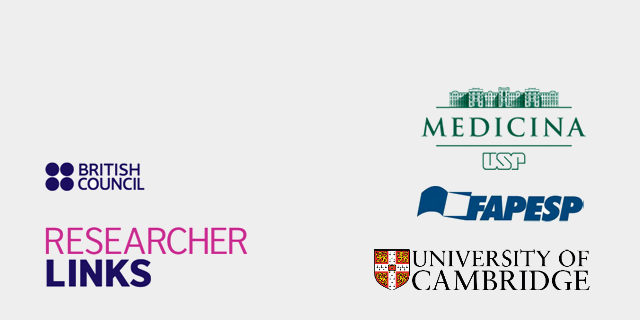
- UK cordinator: Dr Joseph Murray, University of Cambridge
- Brazilcoordinator: Dr GuilhermePolanczyk, University of São Paulo
- Disciplines: Psychiatry, Psychology, Criminology
- Dates and location: 28-29 March, São Paulo, Brazil
Workshop Summary.
Childhood behavioural problems are important predictors of later crime and violence. Traditionally, psychiatric research concentrates on biological mechanisms influencing childhood behaviour problems, and criminological research on social factors influencing adolescent crime.The two perspectives are not well integrated. This workshop aims to bring the two fields together to develop ideas and collaborations for integrated biosocial research on the development of antisocial behaviour through the life course in Brazil and Britain.
Psychiatry includes the study of biological bases of childhood behavioural problems (conduct disorders and hyperactivity disorders). It has elucidated genetic, hormonal, and neurochemical influences, but has tended to neglect the role of the social environment. Developmental criminology aims to identify risk factors that increase the probability of crime and violence. This line of research has traditionally focused on environmental factors, such as parenting styles, family socioeconomic conditions, and school and neighbourhood characteristics. Although criminologists are aware of the importance of childhood behavioural problems in the development of crime and violence, there is little collaboration between psychiatrists and criminologists to investigate the interplay between biological and social influences on the development of antisocial behaviour.
During this two-day workshop, leading psychiatrists and criminologists from Britain and Brazil will give keynote lectures on biological and social research on the development of antisocial behaviour, highlighting opportunities for early career researchers to conduct integrated biosocial studies on this theme. Research and poster sessions will enable early career researchers to showcase their work and discuss these topics. Further sessions will aim to develop concrete ideas for collaboration.
The British Council and FAPESP, Brazil has launched a new five-year programme to encourage international research collaboration between ambitious young researchers from the UK and eighteen countries around the world.
The programme, 'British Council Researcher Links' provides opportunities for early career researchers from the UK and internationally to interact, learn from each other and explore opportunities for building long-lasting research collaborations.
As part of this programme, a 'call to action' was issued in June 2013 for leading researchers to propose themes for bilateral workshop stobe held in one of these countries which will bring together early career researchers to discuss their research and start to build international relationships.
Successful applicant organisations from the UK and Brazil are now recruiting early career researchers and welcome applications to attend the above workshop.
The workshops will provide a unique opportunity for sharing research expertise and networking. During the workshops early career researchers will have the opportunity to present their research in the form of a poster/short oral presentation and discuss this with established researchers from the UK and partner countries. There will be a focus on building up links for future collaborations and participants selected on the basis of their research potential and ability to build longer term links.
The British Council and and FAPESP will cover the costs related to the participation to the workshop, including: travel (both international and local) and accommodation. Costs for visas will be covered; however participants will be responsible for making all the necessary arrangements. Although this cost will not be covered by the British Council, participants are encouraged to purchase an adequate travel and medical insurance. The British Council accepts no responsibility for any problems which may occur when the participants are in-country.
Application and Deadline:
The full application below must be completed and submitted by to:Dr Murray jm335@cam.ac.uk by British applicants, and to Dr Polanczykgvp@usp.brfor Brazilian applicants by the deadline of 15 January 2014.
Eligibility Criteria:
- Applications must be submitted using the Researcher Links application form
- Application must be submitted before the above deadline
- Participants must be early career researchers: Early Career Researchers are defined as holding a PhD (or having equivalent research experience) and having up to 10 years post-PhD research experience. They are equivalent to the 'Recognised Researcher' and sometimes 'Experienced Researcher' categories in the EU framework for researchers' careers. http://ec.europa.eu/euraxess/pdf/research_policies/Towards_a_European_Fr... . Leading Researchers as defined by the EU Framework for researchers careers are research group leaders who are internationally recognised in their field
- Participants must have a research or academic position (either a permanent post, research contract, or fellowship etc) at a recognised research institution either in the UK or in Brazil
Quality Assessment
- Experience and relevance of the applicant's research area to the workshop
- Motivation and contribution to the aims of the workshop
Selection Procedure:
- Eligibility check
- Quality assessment
Notification of results:
Applicants will be notified by email 2 months prior to the workshop.
Equal Opportunities
The British Council is committed to equal opportunities and diversity in all its activities and this includes the avoidance of any bias in the assessment of applications due to gender, disability, racial or ethnic origin, sexual orientation, or religious belief. Participants' selection undertaken by workshop organisers must not contravene this policy. Extra support to enable participation of early career researchers with special needs will be given.
